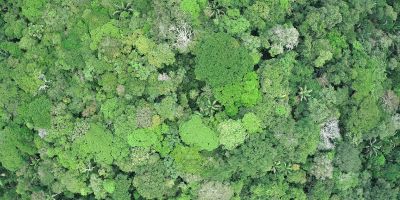Leeds water experts contribute to the UN-Water Report

Cat Moody, Joseph Holden and Andy Baird produced a chapter of the United Nations (UN) Water Report: Water for Climate Mitigation.
Climate change mitigation measures require a lot of fresh water. Water for Climate Mitigation outlines the water requirements of measures set out in the Paris Agreement, from creating clean energy to restoring forests and peatlands.
The report supports policymakers and researchers to make essential decisions about water use while striving for net zero. It was launched at the Bonn Climate Change Conference in June 2024 and will inform the UN-Analytical brief at COP29 later this year.
Peatlands are efficient climate change mitigators
Dr Cat Moody, Professor Joseph Holden and Professor Andy Baird (water@leeds and School of Geography) produced chapter 7 of the report: Maintenance of the hydrology of peatlands.
They list each measure – methods of restoring and conserving each type of peatland – along with its climate benefit and the water it needs.
Natural peatland sites would not need additional water to maintain them unless the climate is drying. This is because peatlands are typically fed by existing rainwater and groundwater. However, if the climate dries, they will require additional freshwater.
Restoration of degraded peatlands requires some additional water, but the water requirements for each tonne of carbon drawn out of the atmosphere are much lower than that needed for other ecosystem climate mitigation measures such as tree planting or carbon capture and storage technologies.
Due to their limited freshwater needs compared to the amount of carbon they remove from the atmosphere, peatlands are more efficient than other climate mitigation measures.
Therefore, the researchers argue that peatland protection and restoration should be a priority action.
“Peatland managment has a vital role to play in global climate mitigation”
Lead author of the peatland chapter, Dr Cat Moody said “Peatlands are hotspots of terrestrial carbon storage. They only cover 3% of the world’s land surface, but store 30% of all soil carbon. When peatlands dry out, they become sources of carbon. Water is essential for maintaining and conserving wet and water-logged peatlands to maximise their carbon storage potential.”
Professor Joseph Holden, Director of water@leeds, noted that “Peatland management has a vital role to play in global climate mitigation. These carbon-rich ecosystems must be protected and restored, and, when managed well, peatlands require many times less water per tonne of carbon saved, than other ecosystem management options such as tree planting, or using crops for biofuel production.”
More information
The International Universities Climate Alliance produced the report in collaboration with the UN-Water Expert Group on Water and Climate Change.
The UN-Water Expert Group on Water and Climate Change is coordinated by the United Nations Economic Commission for Europe, United Nations Educational, Scientific and Cultural Organization and the World Meteorological Organization.
The International Universities Climate Alliance published the UN Water Report: Water for Climate Mitigation on 3 June 2024.




